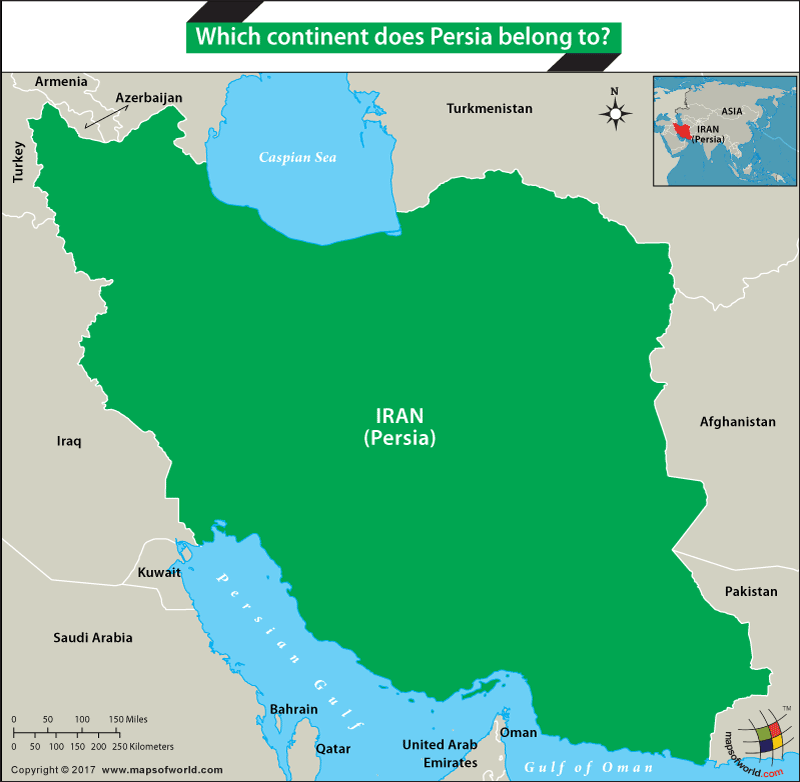Where is Persia?

The name Persia may, however, only be used to refer to Iran in some contexts. When used in the historical context, the term Persia may refer to the land ruled by any of the dynasties that built their empire around modern-day Iran. In this article, we will explore where is Persia, interesting facts and more.
Is Persia a Country?
Persia is not a country today. It is the old name for what we now call Iran. For many centuries, “Persia” was used to describe this region and its people. So, even though it is not a country now, it refers to the same area as modern-day Iran.
Where is Persia Located?
The name Persia, in modern usage, is a reference to the Islamic Republic of Iran. The names Persia and Iran are often used interchangeably. In 1935, the Iranian government asked the world to call the country “Iran” instead of “Persia.” Iran is located in western Asia. It is bordered by Armenia, Azerbaijan, the Caspian Sea, and Turkmenistan to the north, Afghanistan and Pakistan to the east, the Persian Gulf and the Gulf of Oman to the south, and Turkey and Iraq to the west.
The Iranians themselves do not use the name Persia to refer to their homeland. Iran is the name that was used by various rulers of the soil since the 1st century. It means land of the Aryans – an all-encompassing term that covers the different ethnic groups in the country.
Where was Persia?
Historically, it was the name for what we now call Iran. The use of the name Persia to refer to Iran may have originated from Greco-Roman usage of “Persian” for Pars or Fars, one of the 31 provinces of modern Iran. The indigenous people of Fars are the Persians but over time the term came to become a name for the people from all of Iran. This reference is incorrect since it ignores the presence of important ethnic groups such as the Kurds and Turks in Iran.
The Persian Empire, especially during the Achaemenid period (about 550-330 BCE), which was built by Cyrus the Great (in approximately 500 BC). Based in southern Iran, Cyrus the Great built an empire that covered Medes, Lydia, and Babylon. In this context, Persia stretched into Eastern Europe as well. Subsequent Persian Empires-Parthian Empire, the Seleucid Empire and the latter Sasanian Empire of the 7th century. It included parts of what we now know as Turkey, Egypt, the Middle East, and Central Asia. Over different periods and under various rulers, the Persian Empire’s size changed, often covering large parts of the ancient world.
Thus, to determine which continent it belongs to, we must know the context in which people use the name. However, in contemporary usage, we take it to mean the West Asian country of Iran.
Persia in Which Country?
Iran encompasses the region historically referred to as Persia. Historically, people used the name “Persia” to refer to what is now Iran.
Interesting Facts
- It is one of the world’s oldest continuous major civilizations, with historical and urban settlements dating back to 4000 BCE.
- Cyrus the Great created the Cyrus Cylinder, often regarded as the first declaration of human rights, around 539 BCE. The artisans inscribed this ancient clay artifact in Akkadian cuneiform script.
- The prophet Zoroaster (or Zarathustra) founded Zoroastrianism, one of the world’s oldest continuously practiced religions, in the early 6th century BCE.
- The Persian language, also known as Farsi, has influenced many languages and cultures throughout history. It has loanwords in Arabic, Turkish, Urdu, and even English.
- The “Persian Garden” concept has significantly influenced garden designs worldwide, symbolizing paradise with its water features, lush vegetation, and geometric layouts.
- People celebrate Nowruz, the Persian New Year, on the first day of spring (around March 21st). People have observed this significant cultural festival for over 3,000 years.
Related Links